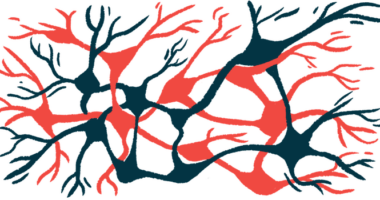Scientists Uncover New Therapeutic Molecule BT13 That May Possibly Protect Against Neurodegeneration

Scientists have uncovered a new therapeutic molecule, called BT13, that can get to the brain to boost dopamine levels — the brain chemical that’s in short supply in Parkinson’s disease — and could potentially protect against neurodegeneration.
While the research is in the early stages, and the molecule has only been tested in mice and cellular models of the disease, the researchers say BT13 shows promise as a way to slow or stop Parkinson’s instead of just treating its symptoms.
The findings were described in the study, “Glial cell line–derived neurotrophic factor receptor Rearranged during transfection agonist supports dopamine neurons in Vitro and enhances dopamine release In Vivo,” published in Movement Disorders.
Evidence shows that a small protein known as glial cell line-derived neurotrophic factor, or GDNF, supports the growth, survival, and differentiation of dopaminergic neurons — those that produce dopamine and progressively degenerate in Parkinson’s disease.
In animal models of Parkinson’s, as well as in human clinical trials, GDNF has shown neuroprotective effects.
However, due to its large size, GDNF is not able to cross the human blood-brain barrier (BBB), and complex surgery is required to deliver the treatment to the brain. The BBB is a semipermeable membrane that protects the brain against the external environment, but is a major barrier for the efficient delivery of therapies that need to reach the brain and central nervous system to work.
BT13, another molecule that binds the same signaling receptor — or RET receptor — for the GDNF molecule family, is much smaller in size than GDNF. Researchers say BT13 has the potential to produce the same neuroprotective effects as GDNF and should be able to more easily cross the blood-brain barrier.
Now, a team of scientists from the University of Helsinki in Finland set out to study this small molecule’s effects in immortalized nerve cells — neurons that are engineered to proliferate indefinitely — and in live mice.
The results revealed that after binding to RET, BT13 triggered molecular signaling cascades related to cellular survival and growth in normal dopamine-producing immortalized neurons. However, when cells were engineered to lack the RET receptor, BT13 had no effect.
BT13 was found to protect against Parkinson’s-related neurodegeneration, which was simulated in the lab by exposing dopaminergic neurons in dishes to 6-OHDA and MPP+ — both neurotoxins that induce cell death and mimic disease symptoms. Importantly, BT13 only protected these neurons when they expressed the RET receptor.
In addition, when BT13 was administered to mice — through an injection directly into the brain — it was able to cross the blood-brain barrier. When in the brain, the molecule activated cell survival and growth pathways and promoted the release of dopamine from the animals’ striatum, a motor control brain area primarily affected by Parkinson’s.
“People with Parkinson’s desperately need a new treatment that can stop the condition in its tracks, instead of just masking the symptoms. One of the biggest challenges for Parkinson’s research is how to get drugs past the blood-brain barrier, so the exciting discovery of BT13 has opened up a new avenue for research to explore, and the molecule holds great promise as a way to slow or stop Parkinson’s,” David Dexter, PhD, deputy director of research at Parkinson’s UK and professor of neuropharmacology at Imperial College London, said in a press release.
“We are constantly working on improving the effectiveness of BT13,” said Yulia Sidorova, PhD, the study’s lead researcher. “We are now testing a series of similar BT13 compounds, which were predicted by a computer program to have even better characteristics.
“Our ultimate goal is to progress these compounds to clinical trials in a few coming years,” Sidorova said.






